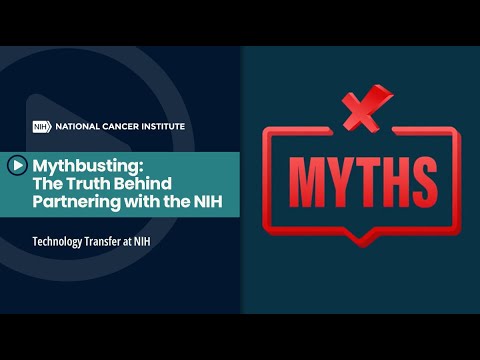Getting Started
NIH cannot commercialize our technologies; therefore, we rely on partners to further develop them to get them to patients. Our partners include pharmaceutical and biotechnology companies from across the world, investors, start-ups, academia, nonprofits, other government agencies, and NIH investigators.
NCI TTC manages the technology transfer services of NCI, and nine other NIH Institutes and Centers; we can also help you make the right connection with other Institutes and Centers across the NIH.
When you are ready to partner, our team of technology transfer managers will guide you through the process including recommending the best type of technology transfer agreements.
NIH Institutes We Support
In addition to discoveries from NCI laboratories, TTC provides technology transfer support for these NIH Institutes:
- Center for Information Technology
- Clinical Center
- Eunice Kennedy Shriver National Institute on Child Health & Human Development
- National Center for Complementary and Integrative Health
- National Eye Institute
- National Institute on Aging
- National Institute on Drug Abuse
- National Institute on Minority Health and Health Disparities
- National Library of Medicine
Why Partner with Us
There are many reasons why companies and organizations should consider working with the NIH including accessing an expansive collection of leading-edge discoveries. Moreover, NIH partnerships have the potential to bring new therapeutics, vaccines, diagnostics, devices, research tools and other innovations to market for the benefit of patients worldwide. NIH partners can:
- Gain access to world renowned researchers and regulatory expertise.
- Gain access to laboratory resources and unique reagents.
- Benefit from a commercialization friendly business model.
- NIH offers licenses with compelling business terms for technologies and research tools.
- While most NIH licenses are nonexclusive, exclusive licenses are available. Exclusive licenses are especially appropriate for projects with significant technical, commercialization and regulatory risks.
- Financial terms are success-oriented with reasonable milestone and royalty obligations.
- Overhead rate capped at 15%.
- NIH offers licenses with compelling business terms for technologies and research tools.
- Collaborate to develop new discoveries and inventions.
- Under a CRADA, you have the option to exclusively license any co-owned Intellectual Property (IP).
- Collaborate to co-develop your own ideas and IP if your organization's and NIH's research interests mutually align.
- Through collaborations NIH can validate your technology and test it in human trials.
- Collaborators keep their background IP; NIH keeps its background IP.
Explore a Partnership
NIH offers a variety of agreements to leverage our unique and wide-ranging resources. Our technology transfer managers (TTM) will review your specific goals to determine the most appropriate agreement. They also will work with you to understand your unique technology transfer needs and guide next steps.
If you are interested in partnering and do not already have a TTC staff contact, please reach out to our Technology Analysis and Marketing Unit at ncitechtransfer@mail.nih.gov.
Next Steps
- Explore our available technologies. If you find a technology of interest, contact the technology transfer manager who supports the technology. Their contact information is listed on each technology page.
- Register to receive notifications about new partnership and licensing opportunities.


